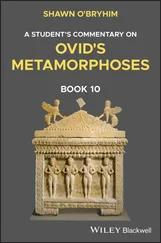Ovid - Fasti
Здесь есть возможность читать онлайн «Ovid - Fasti» — ознакомительный отрывок электронной книги совершенно бесплатно, а после прочтения отрывка купить полную версию. В некоторых случаях можно слушать аудио, скачать через торрент в формате fb2 и присутствует краткое содержание. Жанр: foreign_poetry, Поэзия, foreign_antique, foreign_prose, на латинском языке. Описание произведения, (предисловие) а так же отзывы посетителей доступны на портале библиотеки ЛибКат.
- Название:Fasti
- Автор:
- Жанр:
- Год:неизвестен
- ISBN:нет данных
- Рейтинг книги:3 / 5. Голосов: 1
-
Избранное:Добавить в избранное
- Отзывы:
-
Ваша оценка:
- 60
- 1
- 2
- 3
- 4
- 5
Fasti: краткое содержание, описание и аннотация
Предлагаем к чтению аннотацию, описание, краткое содержание или предисловие (зависит от того, что написал сам автор книги «Fasti»). Если вы не нашли необходимую информацию о книге — напишите в комментариях, мы постараемся отыскать её.
Fasti — читать онлайн ознакомительный отрывок
Ниже представлен текст книги, разбитый по страницам. Система сохранения места последней прочитанной страницы, позволяет с удобством читать онлайн бесплатно книгу «Fasti», без необходимости каждый раз заново искать на чём Вы остановились. Поставьте закладку, и сможете в любой момент перейти на страницу, на которой закончили чтение.
Интервал:
Закладка:
Ovid
Fasti
NOTES AND AN INTRODUCTION,
BY
THOMAS KEIGHTLEY,
Author of The Mythology of Ancient Greece and Italy, History of Greece,
History of Rome, etc.
Sex ego Fastorum scripsi, totidemque libellos;
Cumque suo finem mense volumen habet.
PREFACE
No one, I should think, who has even done nothing more than look into Ovid's Fasti, will refuse his assent to the following words of Hercules Ciofanus, one of the earliest editors of this poem: Ex omnibus , says he, veterum poetarum monumentis nullum hodierno die exstat opus, quod, aut eruditione aut rebus quae ad Romanam antiquitatem cognoscendam pertineant, hos Ovidii Fastorum libros antecellat . In effect we have here ancient Roman history, religion, mythology, manners and customs, and moreover much Grecian mythology, and that portion of the ancient astronomy which regards the rising and setting of the different constellations. These altogether form a wide field of knowledge; and in my opinion there is not, in the whole compass of classical literature, a work better calculated to be put into the hands of students.
Accordingly the Fasti are read at some of our great public schools and at several of the private ones, and I have lately had the gratification of seeing this very edition adopted at one of the most eminent of the great schools. The name of the master of that school, did I feel myself at liberty to mention it, would be a warrant for the goodness, at least the relative goodness, of the present edition.
At the same time I will candidly confess that the work falls far short of my own ideas of perfection in this department of literature. Circumstances, which it is needless to mention, caused it to be executed in a very hurried manner and without the necessary apparatus of books. It was in fact undertaken, written, and printed in little more than two months. This is mentioned in explanation of, not in excuse for, its defects—for no such excuse should be admitted.
The text is that of Krebs, the latest German editor; from which however I have occasionally departed, especially in the punctuation. In the notes will be found the most important various readings of the fifty-eight MSS. of this poem which have been collated. I have also adopted the Calendar of Krebs' edition, as being on the whole the best, and as its copiousness enables it to supply the place of arguments to the several books.
In the Introduction I have given such matter as the student should be acquainted with previous to commencing the poem. The study of it will, I trust, be found to be of advantage. My plan in writing the notes was, to be as concise as was compatible with a full elucidation of the meaning of the author. While therefore no difficult passage is left without at least an attempt at explaining it, I have avoided swelling out my notes with mythic or historic notices and narrations which may be found in the Classical Dictionary. I suppose, for example, the student to know, or to be able easily to discover, who Hercules and Romulus were, and where Mount Haemus lies. Perhaps it would have been better if the notes on the first two or three books had been more copious; those on the three last are, I believe, sufficiently so.
Many references will be found to Niebuhr's History of Rome, and to my own Mythology of Greece and Italy. For those to the former work I may perhaps be entitled to thanks, as leading the attention to the noble discoveries of the Bacon of history, as he is justly styled by Dr. Arnold. This last eminent scholar is himself engaged on a History of Rome, of which apart has appeared, and which promises to form a permanent portion of our historic literature. In my own epitome of the Roman history sufficient information on the portions of it alluded to will be found by those who have not access to the work of Niebuhr. For the accuracy and fidelity of the translation of Niebuhr's history by my friends Hare and Thirlwall, I can pledge myself without any reservation. It may be useful here to add, that the dates in the following notes are those of the Varronian chronology, and not the Catonian as in my History of Rome.
With respect to my Mythology, I may boldly say it is the only work on the subject in our language. Even the first edition (which is the one referred to in the notes) received the approbation of the most competent judges, and the second has been so much enlarged and improved as to form in reality a new work. At the same time, I do not enjoin the study of it: the references were merely intended for the use of those who desire something more than the ordinary superficial acquaintance with mythology.
The errata , or typographical errors, are more numerous than they should have been; but a complete list of them will be found on the page opposite the commencement of the poem. There are, however, two or three errors of a graver kind, which I may here rectify.
The reader will observe perhaps with surprise how completely I mistook the sense of Lib. II. vv. 619, 620; though it is so obvious. The passage might possibly bear the sense which I have given it; but it surely is not what the poet meant. I was led into the error by v. 566. My interpretation certainly gives the more poetical sense, and it is curious enough that I have since met with the very same idea in one of the plays of our old dramatist Ford:
"These holy rites perform'd, now take your times To spend the remnant of the day in feasts. Such fit repasts are pleasing to the saints Who are your guests, though not with mortal eyes To be beheld."
In the note on Lib. III. v. 845, the remark on furta is trifling; for that word is equivalent to fures , as servitia is to servi, operae to operarii , etc., such being one of the peculiarities of the Latin language. The time of the death of the Fabii is given incorrectly in the note on Lib. II. v. 195: it should be "the Quinctilis of the year 277." There is, I believe, no other error of any importance. Should another edition be called for at any future time, I shall endeavour to make it more complete,
T. K.Tunbridge Wells , Aug. 30, 1839.
INTRODUCTION
§ 1. OF THE RISING AND SETTING OF THE STARS—§ 2. OF THE ROMAN YEAR —§ 3. OF THE ROMAN MONTHS AND DAYS—§ 4. OF THE ROMAN FASTI—§ 5. OF OVID'S POEM ON THE FASTI—§ 6. OF THE EDITIONS OF THIS POEM.
§ 1.
Of the Rising and Setting of the Stars .
The attention of a people who, like the ancient Greeks, dwelt in a region where, during a great part of the year, the night might be passed in the open air, and no mists or clouds obscured the heaven, must have been early drawn to those luminous points which are scattered over it in such profusion. They must have early learned to distinguish various clusters of them, and thence to give them appropriate names. Accordingly, in the most ancient portion of Grecian literature, the Homeric and Hesiodic poems, we find various groupes of the stars designated by peculiar names. Such are Orion, the Hyades, the Pleiades, the Bear or Wain, the Dog and the Ploughman or Bear-ward (Boötes or Arcturus). The case was the same in the East; we meet in the book of Job (c. ix. 9.) names for the Pleiades, Hyades and Orion, and (xxvi. 14.) the constellation named the Great Serpent. The people of ancient Italy appear to have done the same: the Latin name of the Pleiades was Vergiliae , that of the Hyades Suculae , the seven stars, which form the constellation of the Great Bear, were named by them the Septem Triones , or Seven Oxen; for, as they go round and round the pole without ever setting, the analogy between them and the oxen, which trod out the corn by going round and round the area , or threshing-floor, was an obvious one. Doubtless, the brilliant constellation Orion, had a peculiar Latin name, which has not come down to us; of the others, none but Greek appellations occur.
Читать дальшеИнтервал:
Закладка:
Похожие книги на «Fasti»
Представляем Вашему вниманию похожие книги на «Fasti» списком для выбора. Мы отобрали схожую по названию и смыслу литературу в надежде предоставить читателям больше вариантов отыскать новые, интересные, ещё непрочитанные произведения.
Обсуждение, отзывы о книге «Fasti» и просто собственные мнения читателей. Оставьте ваши комментарии, напишите, что Вы думаете о произведении, его смысле или главных героях. Укажите что конкретно понравилось, а что нет, и почему Вы так считаете.












